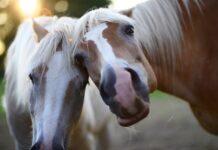Part IV
My great-grandfather Charlie was 21 the winter his mother needed surgery as her health deteriorated. As the oldest, he arranged for his youngest two brothers to accompany their mother on the train to Pittsburgh for surgery, and the boys were placed in St. John’s orphanage, fearing the outcome. (Scroll down to see links to the first three parts in this series.)
The difficult surgery spared Laura’s life. She spent her recovery time in the Pittsburgh area, and as soon as she was able, reclaimed her two youngest sons from the orphanage and headed home on the westbound train to Ohio.
Charlie had arranged for the middle son, Frank, to stay with the Harry Fry family and help with farm chores for room and board.
“It sure beat starving,” Charlie would often say of the many ‘room and board’ deals he struck for himself and his brothers over the years of their hard-scrabble childhood.
There was no public assistance for widows at this time in history, and Laura was grateful for her wise-minded oldest son Charlie who looked out for his mother and each of his younger brothers.
A reason to visit
The Fry family consisted of eight girls and two boys. Charlie called on the Fry family often, checking on his little brother. Mrs. Fry, a German immigrant, was known to be a great cook and her baking treats likely satisfied Charlie’s sweet tooth.
It was the summer of 1906 when 22-year-old Charlie, who had been courting Anna Fry, made his intentions clear. They married in the bride’s home in September, spending their honeymoon in Pittsburgh, returning to live with the Fry family until they landed a home on yet another farm where Charlie worked for wages.
Up until this time, nearly all of Charlie’s earnings had gone to his widowed mother. A year later, in October, they welcomed their firstborn, son Carl. In January, 1911, daughter Helen was born.
Beware the box
Charlie took every job he could land in order to better his wages, and often this meant packing up and moving.
For a time, Charlie was farm manager for Mr. Swetland, who told the men who worked for him that he kept a blacksnake in a box in the barn, warning them to stay away from it.
Charlie grinned as he told this story, his curiosity getting the better of him. “I just had to see that snake!” Inside the box was something with a bite, all right. It was where Mr. Swetland kept a whiskey bottle hidden.
As the years rolled on, Charlie loved to recall the day he worked up the courage to look in that old trunk, preparing for the wrath of an imprisoned blacksnake. He chuckled with glee every time he told this story.
Other brothers
In the winter of 1913, youngest brother Herb, 17, moved to Pittsburgh to learn the jewelry, watch and clock repairing business from brother Harry. Mr. Stump had died and left the business to Harry, which had to have made the family proud.
Harry was married to Bessie Harper, who compiled the first Myers family history, followed years later by Helen’s daughter, my aunt, Miriam Young Slabaugh, which is a gift of incredible value.
Herb worked for his brother and then prepared to serve his country. Before shipping out to serve in France as the “war of the world” progressed, Herb traveled to Ohio to see Charlie’s third and last child, Virginia. This young man had to have wondered if he would get to see his new niece grow up, as World War I was prompting people to declare that the end days had surely come.
* * *
Part III: The goal is to keep the family together
Part II: Young man persists, despite hardships
Part I: Papa was a farmer












